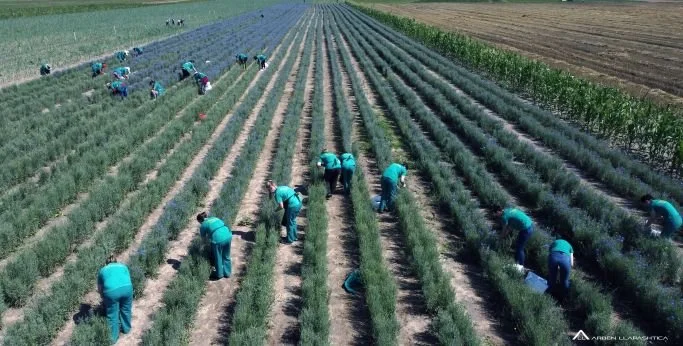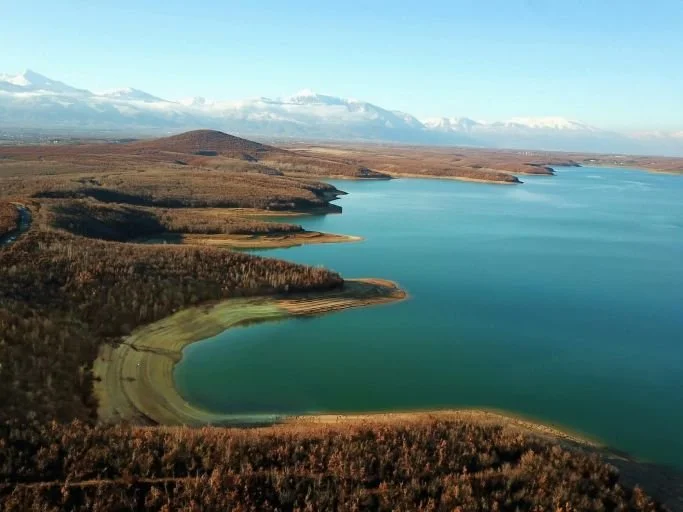Interview with H.E. Ambassador Shkëndije Geci Sherifi - Kosovo today
Economic outlook of Kosovo today – and what are the prospects for the country?
Kosovo has shown a resilient and dynamic economic growth over the past few years. Despite global challenges, the country maintains a steady GDP growth, driven by strong service sector, remittances, and investment in infrastructure. While our economy has grown by an average of 3.5 percent over the last five years, we estimate the annual growth to exceed 4 percent by the end of 2025. The prospects are very promising: Kosovo is investing in digitalization, energy transition, and regional connectivity, creating a solid foundation for sustainable economic development. The government is committed to improving the business environment, supporting entrepreneurship, and attracting foreign investment.
How would you describe the business environment in Kosovo today?
Kosovo’s business environment is increasingly open and entrepreneurial, characterized by dynamic growth across multiple sectors. The country benefits from a young and educated population, with a median age of around 35 years, much younger than average in EU countries, and a workforce that is highly tech-savvy and increasingly proficient in foreign languages. Competitive labor costs and an expanding pool of skilled professionals make Kosovo an attractive destination for both domestic and foreign investors. Strategically located in the Western Balkans, Kosovo provides easy access to regional markets, facilitating trade and investment opportunities across Europe. The government continues to implement legal and administrative reforms aimed at simplifying business registration, licensing, and permit procedures, reducing bureaucratic hurdles, and improving transparency. Additionally, initiatives to foster innovation, support startups, and promote digitalization are gradually shaping a more favorable environment for entrepreneurship and foreign direct investment. Access to modern infrastructure, telecommunications, and financial services further strengthens Kosovo’s potential as a regional business hub.
Which kind of business opportunities are there for Finnish companies in Kosovo?
Finnish companies can find opportunities in multiple sectors. Key areas include renewable energy and green technologies, ICT and digital solutions, education and vocational training, healthcare, infrastructure development, and sustainable tourism. Kosovo’s growing market for innovative solutions and services provides fertile ground for Finnish expertise. Companies can leverage these conditions to introduce advanced technologies, sustainable practices, and high-quality services, achieving both meaningful impact and strong returns.
Please, also explain which kind of investment opportunities there are for Finnish companies in Kosovo.
Kosovo presents a wide range of investment opportunities across several key sectors. In the energy sector, there is significant potential in renewable energy projects, including solar, wind, and energy efficiency initiatives. We emphasize that Kosovo aims to achieve 32% renewable energy in its energy mix by 2030, with a longer-term target of 35% by 2031. This ambitious goal is part of our broader efforts to diversify energy sources and reduce dependence on coal, which currently accounts for over 70% of electricity generation.
The agriculture and food processing industry also offers promising prospects, particularly in modernizing farming practices, introducing innovative technologies, and exporting high-quality products. Likewise, the wood processing and furniture industry stands out as a sector with great potential, building on Kosovo’s tradition of craftsmanship, availability of raw materials, and growing export demand for high-quality, sustainably produced furniture.
Kosovo’s rapidly growing IT sector provides fertile ground for investment in ICT and tech startups, supported by a skilled and talented workforce. Infrastructure and construction projects, including the development of roads, bridges, and urban areas, represent additional avenues for investment. Finally, the tourism and hospitality sector holds strong potential, with opportunities to develop resorts, hotels, and adventure tourism experiences that cater to both domestic and international visitors.
If a Finnish company decides to invest in Kosovo, what are the most important issues this enterprise must take into consideration in order to succeed in the market?
Achieving success in a foreign market requires a thorough understanding of the host country’s business culture and organizational structure. In Kosovo, the local population generally demonstrates a welcoming attitude toward foreigners, facilitating their integration into the market. Establishing trust with prospective local partners and cultivating strong personal relationships are essential foundations for long-term success. Equally critical is a comprehensive knowledge of the country’s legal and regulatory frameworks, which ensures smooth and compliant operations. In addition, businesses are encouraged to explore opportunities within the wider regional market, extending beyond Kosovo’s borders. Investing in the development of local talent not only enhances operational capacity but also creates a strong foundation for sustainable growth. The market conditions and local commitment provide the necessary environment for Finnish business actors to achieve success in Kosovo.
Which kind of assistance and which kind of benefits are there in Kosovo for Finnish companies which would like to invest in Kosovo?
Kosovo offers a range of opportunities designed to attract and support investors. Strategic investments can benefit from various tax exemptions and incentives, making the business environment financially appealing. The country also hosts industrial parks and economic zones that provide additional advantages to businesses, including streamlined operations and specialized infrastructure. Investors can receive tailored support from the Kosovo Investment and Enterprise Support Agency (KIESA), which assists with guidance, permits, and connections to local partners. Furthermore, financing programs are available for projects focused on green technologies and innovative solutions, facilitating growth and sustainable development.
Please, tell us the main rules of business culture that a Finnish businessman should know.
Kosovo’s business culture is characterized by an emphasis on respect, trust, and the cultivation of personal relationships. Historically, during a period when the private sector was underdeveloped, verbal agreements played a central role in business dealings. However, with the transition to a market economy, practices have shifted toward more structured and formalized approaches. Engaging in business with Kosovars is generally straightforward. Initial meetings are often dedicated to building rapport, underscoring the priority placed on establishing strong relationships before moving into concrete negotiations. Business counterparts are typically flexible and approachable rather than rigid in their interactions. A notable trend is the influence of the younger generation, which increasingly values open communication, transparency, and professionalism. This generational shift reflects Kosovo’s broader integration into modern business standards and its evolving corporate environment.
Please, tell us about the tourist attractions and holiday resorts in your country. What about delicacies of your cuisine?
Kosovo is a hidden gem in the Balkans, offering a captivating blend of stunning landscapes, rich history, and vibrant culture. The country’s diverse attractions make it an increasingly popular destination for travelers seeking both adventure and cultural experiences. The historic city of Prizren stands out as a must-visit destination, renowned for its well-preserved Ottoman architecture, charming riverside cafés, and lively cultural festivals. Visitors can stroll through its cobbled streets, explore traditional markets, and enjoy the city’s unique blend of history and modernity. For nature enthusiasts, the Rugova Mountains provide a breathtaking setting for hiking, skiing, and adventure tourism, with dramatic peaks, deep valleys, and scenic trails that attract outdoor lovers year-round. Similarly, Peja and the nearby Accursed Mountains offer pristine landscapes and rich biodiversity, making them ideal for trekking, mountaineering, and immersive nature experiences. Kosovo's cultural heritage is equally impressive. Churches, mosques, and other historical monuments scattered throughout the country showcase remarkable architecture, religious art, and centuries-old traditions. The foothills of the Shar Mountains offer unique beauties for skiing and alpine activities. Tourists can also explore the ethnographic village of Ulpiana, ancient Roman ruins, and the thermal springs of Banja e Pejës or of Kllokot, which are perfect for relaxation and wellness tourism. Overall, Kosovo combines natural beauty, historical richness, and a vibrant cultural scene, making it an ideal destination for travelers seeking both adventure and meaningful cultural experiences.
Regarding the cuisine, Kosovo is known for its hearty and flavorful dishes, reflecting the country’s rich cultural heritage. One of its most iconic specialties is Flija, a layered pastry often enjoyed with cream or cheese. The culinary experience is further enriched by fresh local cheeses, perfectly grilled meats, and traditional beverages such as locally produced wines and rakia. Beyond its cuisine, Kosovo extends a warm welcome to visitors, inviting them to explore a land of striking natural beauty, vibrant cultural traditions, and authentic gastronomic delights.
Questions by FinnCham
Answers by H.E. Ambassador Shkëndije Geci Sherifi
Embassy of Kosovo in Stockholm
Tel.: +46 (0) 8 614 68 60






